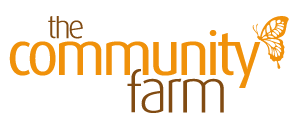With the announcement of lockdown came the inevitability of disruption. Countless fearful questions soon followed: why the rush on toilet paper? Why was there still bread on supermarket shelves but no flour – let alone no yeast? Why the constant and tiring flip-flopping on advice and advisories? How long will we have to live like this?
Then came the institutional fallout: jobs lost and employees flung into furlough limbo; small businesses having to mutate or fold; entire industries plunged into interminable uncertainty.
And then, slowly, once the initial surreal strangeness had passed, along came the bemusement and anguish of the personal. For some, this appeared as a creeping, torturous isolation from loved ones, from everyday social contact, from touch and song and – as mask wearing increased – even from smiles. Digital solutions helped but were often experienced as shallow, glitching substitutes.
For others, the feverish opposite played out: they lived in the dread shadow of pressure-cooker living arrangements that lacked a release valve. Parents struggled to juggle work with family; children struggled to understand why they couldn’t play with their friends. Relationships imploded or simmered with resentment.
Loss of all kinds was rife; some permanent, mortal.
The disruption also forced new perspectives and ways of relating. Suddenly, one’s immediate locale became incredibly important. Think: neighbours, greenspaces, and local shops. Or rather: people, places, and food to eat - the very basics on which our society is built. These are and always have been the important things, crisis or not. But it is only when such taken-for-granteds are disrupted that we become aware of them.
Given the unreliability of supermarket shelves and the closure of pubs, restaurants, places of worship and other traditional gathering places, The Farm quickly became a beacon for many during this difficult time; indie retailers enjoyed a similar luminosity. But should this be surprising? Just like how a kitchen is the heart of a house, The Community Farm is situated at the irresistible confluence of people, place and food.
Countless volunteers wanted to come out to The Farm from the beginning of lockdown; it was hard but necessary to say no until we had managed to put plans in place to protect our visitors and our staff. Similarly, we had to say no to many potential veg box customers at the start of lockdown; it took us time to scale up appropriately and to ensure that the quality of our offering would continue to meet our own high standards.
And yet the land, the soil, the hedgerows and their denizens remained the same: patiently waiting, growing, living. So, it is of little surprise that during this period of disruption in which our social and food-related lives were turned upside down, that people sought stability in that which has not changed: the land and its flora and fauna.
Indeed, the land is the foundation of everything that we do and everything we need. Without the land there is no food, and with no food to eat, there are no people. It is only when the land stops being able to provide for us and ours that we need to really start worrying. By being in relationship with the land, we care for it. And, just as we were raised by our parents, there comes a time when that relationship can invert and the cared for becomes the caretaker. This is an effortless decision to make when there is love, and there is much love for the land when we come to notice it, such as during this period.
When people talk about the upside of lockdown, it often comes back to nature relations and the wonder and love therein: being able to hear birdsong in the city, the sight of clearer skies free of air traffic, thrillingly close or rare wildlife interactions, and a greater general intimacy with the world at large and small scales. Shifts in routine and our sense of time changed the previously mundane into something revelatory and precious. Daily walks became lifelines, adventures, periods of recalibration during which we were taken back to the land, the most fundamental of fundamentals.
As lockdown continued and then lifted, this relation to place started to shift. No longer having to worry about food and people and blunted by repetition, our surroundings once again became mundane, for, as many of these articles have described, we humans are incredibly adaptable beings. When disruption strikes it serves to illuminate the previously unseen cracks in the systems, relations and ways of being that we take for granted. But the light dims quickly. And our eyes start to close.
But for us here at The Community Farm, our eyes have been forced open, ever wider than before. For now we truly understand just how important it is to support spaces such as ours, places where the fundamental union of food, people and nature exists regardless of other concerns. Yes, we deliver veg boxes and provide people with a place where they can get their hands in the soil, but, ultimately, beyond all this, we provide a foundational connection to what it means to be alive: in community with each other, with the land, and with its bounty. COVID has helped us to remember this; it is our duty to stay awake, and to persistently and kindly prod those who have already begun to nod off, pointing to the ties that irrevocably bind us to each other, to land, to food, and to life.
Ian Weatherseed
Marketing Manager at The Community Farm
Join one of our free New Year wellbeing courses Book on here
About Us
- Home
- About Us
- News from The Farm
- A Reflection: People, Place and Food

Search
A Reflection: People, Place and Food
- Details

Our Most Popular Boxes
Do we deliver to you?
We deliver to Bristol, Bath, Chew Valley, Weston-Super-Mare, Frome and plenty of places in-between!
The Community Farm
Denny Lane
Chew Magna
Bristol BS40 8SZ
Our Outlets
Saturdays 9am-2pm
The same wonderful, organic produce that goes into our veg boxes is available for sale at The Farm's Veg Shed.
The Community Farm is a not-for-profit organisation, registered with the Financial Conduct Authority as a Community Benefit Society.
Our registration number on the Mutuals Public Register is 31018 R. Our companies Number at Companies House is IP031018
© 2025 The Community Farm












